Say Good Bye To Acne...
Mar 19, 2020 • 7 views
Acne is one of the most common skin conditions in the world, affecting an estimated 85% of people at some point in their lives.
Conventional acne treatments can be expensive and often have undesirable side effects like dryness, redness and irritation.People can use specific home remedies to help balance the skin’s oil levels, reduce inflammation, kill bacteria, and prevent future acne breakouts.
What Causes Acne?
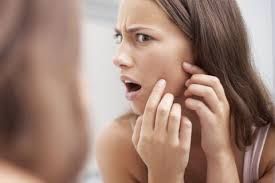
Acne occurs when the pores of your skin become blocked with oil, dead skin, or bacteria.
Each pore of your skin is the opening to a follicle. The follicle is made up of a hair and a sebaceous (oil) gland.
The oil gland releases sebum (oil), which travels up the hair, out of the pore, and onto your skin. The sebum keeps your skin lubricated and soft.
One or more problems in this lubrication process can cause acne. It can occur when:
too much oil is produced by your follicles
dead skin cells accumulate in your pores
These problems contribute to the development of pimples. A pimple appears when bacteria grows in a clogged pore and the oil is unable to escape.
Symptoms:
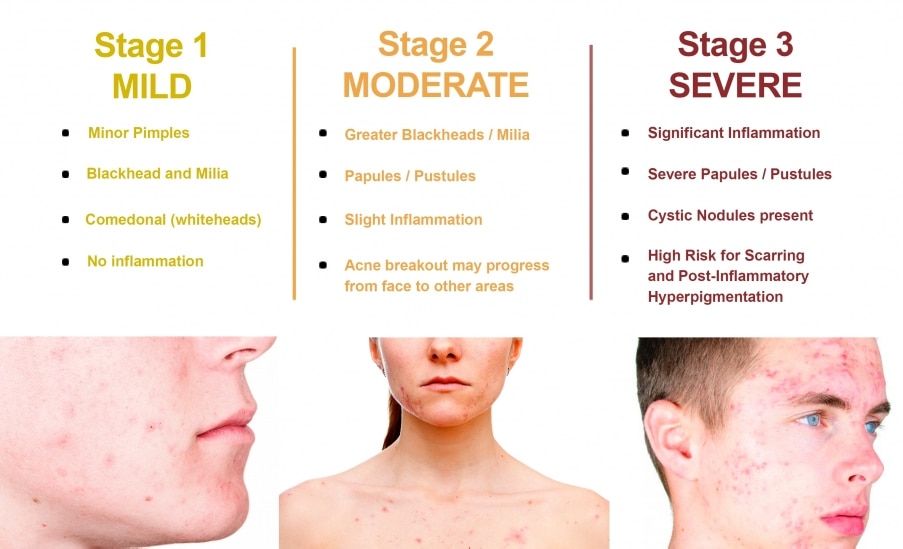
Acne signs and symptoms vary depending on the severity of your condition:
Whiteheads (closed plugged pores)
Blackheads (open plugged pores)
Small red, tender bumps (papules)
Pimples (pustules), which are papules with pus at their tips
Large, solid, painful lumps beneath the surface of the skin (nodules)
Painful, pus-filled lumps beneath the surface of the skin (cystic lesions)
3 powerful Home Remedies for Acne:
1. Apply Apple Cider Vinegar
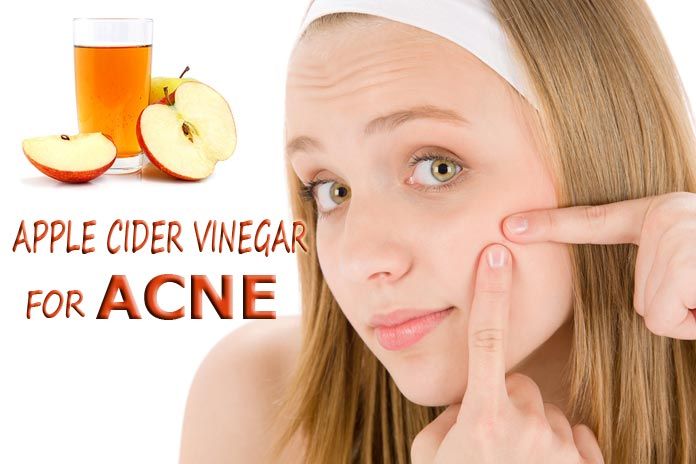
Apple cider vinegar is made by fermenting apple cider, or the unfiltered juice from pressed apples.
Like other vinegar’s, it is known for its ability to fight many types of bacteria and viruses
In particular, succinic acid has been shown to suppress inflammation caused by P. acnes, which may prevent scarring
Also, lactic acid has been shown to improve the appearance of acne scars,What's more, apple cider vinegar may help dry up the excess oil that causes acne in the first place.
How to Use It
Mix 1 part apple cider vinegar and 3 parts water (use more water for sensitive skin).
After cleansing, gently apply the mixture to the skin using a cotton ball.
Let sit for 5–20 seconds, rinse with water and pat dry.
Repeat this process 1–2 times per day, as needed.
It is important to note that applying apple cider vinegar to your skin can cause burns and irritation, so it should always be used in small amounts and diluted with water.
The organic acids in apple cider vinegar may help kill acne-causing bacteria and reduce the appearance of scars. Applying it to the skin may cause burns or irritation, so it should be used carefully
2. Apply Green Tea to Your Skin
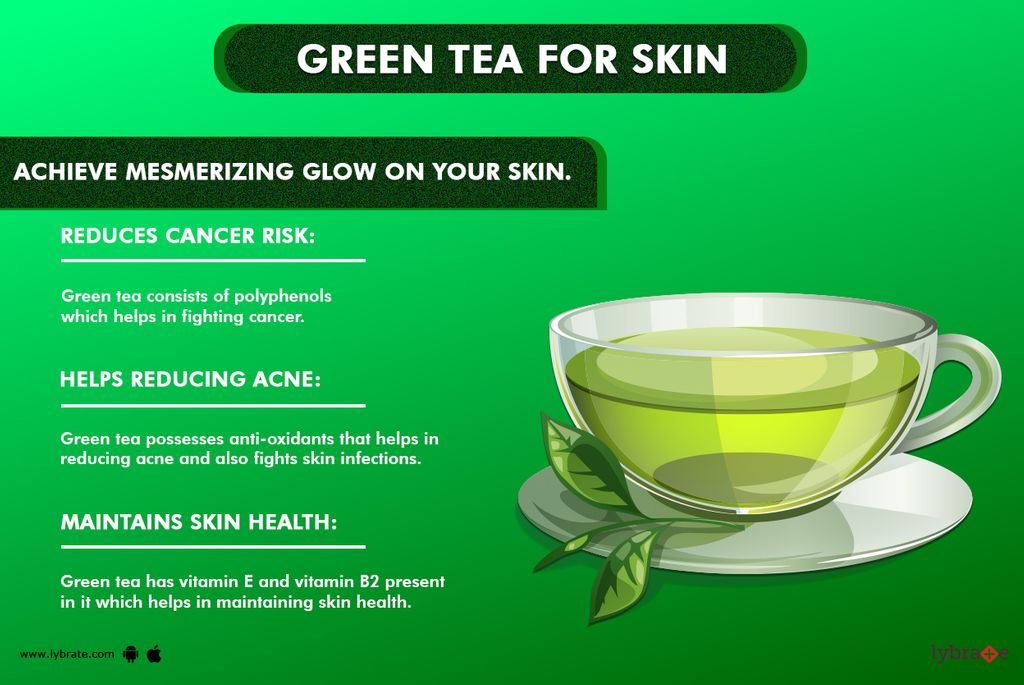
Green tea is very high in antioxidants, and drinking it can promote good health.
There aren't any studies exploring the benefits of drinking green tea when it comes to acne, but applying it directly to the skin has been shown to help.
This is likely because the flavonoids and tannins in green tea are known to help fight bacteria and reduce inflammation, which are two main causes of acne.
The major antioxidant in green tea — epigallocatechin-3-gallate (EGCG) — has been shown to reduce sebum production, fight inflammation and inhibit the growth of P. acnes in individuals with acne-prone skin .
Multiple studies have shown that applying a 2–3% green tea extract to the skin significantly reduces sebum production and pimples in those with acne.
You can buy creams and lotions that contain green tea, but it is just as easy to make your own mixture at home.
How to Use It:
Steep green tea in boiling water for 3–4 minutes.
Allow tea to cool.
Using a cotton ball, apply tea to skin or pour into a spray bottle to spritz on.
Allow to dry, then rinse with water and pat dry.
You can also add the remaining tea leaves to honey and make a mask.
Even though there isn't any evidence that drinking green tea can fight acne, some research suggests it may still be beneficial.
For example, drinking green tea has been shown to lower blood sugar and insulin levels, which are factors that can contribute to the development of acne.
Green tea is high in antioxidants that help fight bacteria and reduce inflammation. Applying green tea to the skin has been shown to significantly reduce acne.
3. Moisturize With Aloe Vera
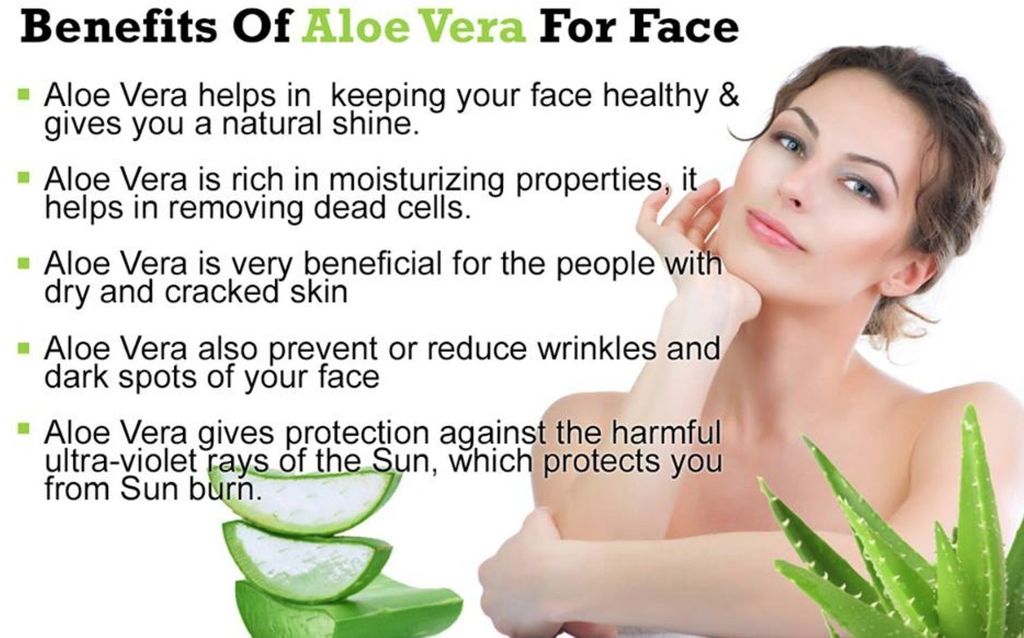
Aloe Vera is a tropical plant whose leaves produce a clear gel.
The gel is often added to lotions, creams, ointments and soaps. It's commonly used to treat abrasions, rashes, burns and other skin conditions.
When applied to the skin, Aloe Vera gel can help heal wounds, treat burns and fight inflammation.
Aloe Vera also contains salicylic acid and sulfur, which are both used extensively in the treatment of acne .
Several studies have shown that applying salicylic acid to the skin significantly reduces acne .
Similarly, applying sulfur has been proven to be an effective acne treatment.
While research shows great promise, the anti-acne benefits of Aloe Vera itself require further scientific evidence.
How to Use It:
Scrape the gel from the aloe plant out with a spoon.
Apply gel directly to clean skin as a moisturizer.
Repeat 1–2 times per day, or as desired.
You can also buy Aloe Vera gel from the store, but make sure it is pure aloe without any added ingredients.
When applied to the skin, Aloe Vera gel can help heal wounds, treat burns and fight inflammation. It may be beneficial for individuals with acne-prone skin, but more research needs to be done.
